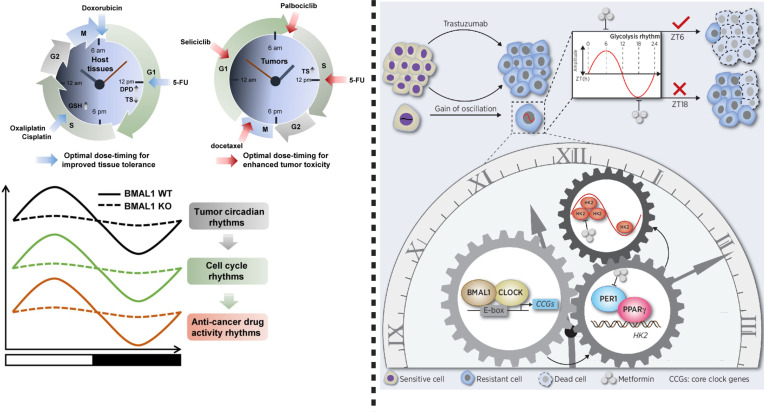Figure 2.
Left: Chronotherapy improves host tolerance and safety against anticancer medicine. To reduce toxicity, dihydropyrimidine dehydrogenase (DPD), 5-FU (an elimination enzyme), and thymidine synthase (TS) play crucial role. Glutathione (GSH), a chronotolerance biomarker is important when oxaliplatin and cisplatin or other platinum based anti-cancer drugs are used. Doxorubicin causes fewer side effects and more therapeutic effects when used in the morning. Circadian rhythms can be targeted by cycle-specific anticancer drugs, while circadian clock function regulates cell cycle rhythms in tumors, which can mediate time-dependent cytotoxicity of antitumor drugs. Importantly, BMAL1 tumor circadian rhythms, cell cycle rhythm and anticancer drug activity rhythm, therefore, targeting BMAL1 in anticancer drug therapy can improve therapeutic response. Right: This figure shows that circadian oscillation of HK2 dependent glycolysis exists in HER2- positive advanced gastric cancer. Chronotherapy using metformin can disrupt rhythm of PER1-HK2, thereby reversing trastuzumab resistance. This modified figure was adopted from Wang et al. (6).

